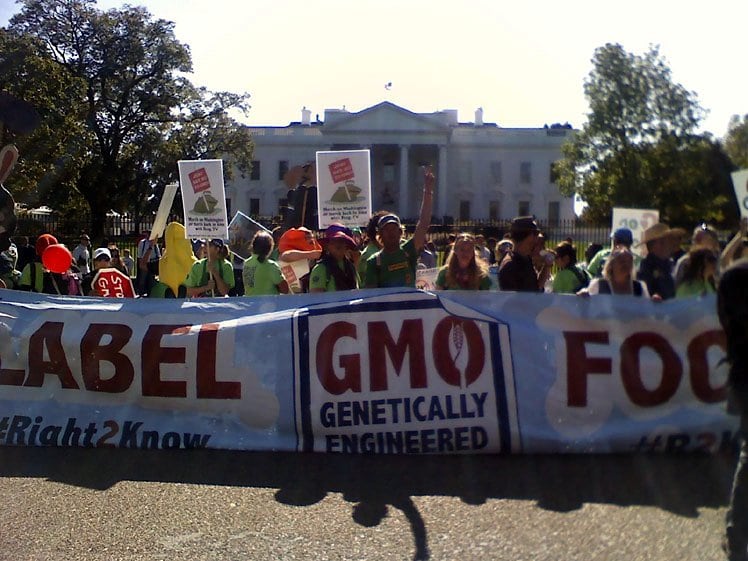While there are other plant-based sources of omega-3s such as flaxseed, they contain ALA (alpha-linolenic acid), which our bodies are not very good at converting into EPA and DHA (eicosapentaenoic acid and docosahexaenoic acid), the omega-3s most associated with cardiovascular health.
By contrast, we are much more efficient at converting SDA into EPA, said Monsanto, which developed the SDA-rich beans by inserting genes from a flower (Primula juliae) and a red bread mold (Neurospora crassa), Federico Tripodi, Monsanto SDA program director, told FoodNavigator-USA.
While a lot of R&D dollars have also been invested into plants genetically engineered to contain EPA and DHA directly, oil from the new SDA-rich beans performs well in everything from dressings, sauces, margarines, spreads and bakery products, to soups, snack bars and dairy-based products, said Tripodi.
“SDA omega-3 soybean oil would provide a sustainable way for consumers to increase their intake of omega-3 fatty acids that help maintain heart health.
“Food companies are looking for solutions to deliver the benefits of longer chain omega-3s while maintaining flavor over the shelf-life of the product.”
Monsanto and Solae had 'different strategic visions'
Under the deal, DSM will license the SDA soybeans from Monsanto (which will sell the seeds to farmers), while DSM will have the exclusive global rights to brand, market, package, and sell the SDA soybean oil to the food industry.
Monsanto had originally joined forces with soy expert Solae to develop the oil - dubbed 'SoyMega - but subsequently tied up with DSM, which has built up considerable expertise in omega-3 fatty acids via its acquisitions of Martek and Ocean Nutrition Canada.

Tripodi declined to comment on why the collaboration with Solae had not worked out, but said that the two had “different strategic visions”.
Meanwhile, the SoyMega name has also been dropped, said DSM.
It is still too early to say when the oil from the beans will be commercially available, said DSM spokeswoman Cassie France-Kelly: "We are still exploring and finalizing commercialization plans."
DSM: GM technology potentially offers substantial benefits in the areas of health, nutrition and the environment
But will the accelerating push for GMO labeling and the growing anti-GMO sentiment expressed by some influential retailers such as Whole Foods Market cloud the future for the oil?
Not if people focus on the benefits, France-Kelly told FoodNavigator-USA: “We believe there is a real need for vegetarian and sustainable sources of long chain omega-3s.
"GM technology potentially offers substantial benefits in the areas of health, nutrition and the environment and the use of this technology can help in supporting human health and in making the world more sustainable.
"Our full portfolio will contain natural, nature identical and GM solutions, offering our customers and their consumers a broad range of choices."
SDA and claims?

Although much of the scientific research on omega-3s is based on studies on DHA or/and EPA, firms using the SDA-rich oil could still make structure-function claims about cardiovascular health as it is well-established that SDA converts readily to EPA in the body, said France-Kelly.
"There is a growing body of research that demonstrates the efficient conversion of SDA to EPA and we believe structure function claims that will communicate the cardiovascular health benefits of SDA oil can be made and substantiated by the data."
GRAS status and regulatory approvals in the US; other markets to follow
“The addition of SDA soybean oil to our growing nutritional lipids portfolio underscores our commitment to delivering high-quality nutritional products that help to support human health,” added Will Black, DSM vice president of marketing human nutrition and health.
FDA has issued a positive response letter to Monsanto's Generally Recognized as Safe (GRAS) notification for the oil from the SDA-rich soybeans, said the partners.
Monsanto has also “completed the key regulatory processes in the US, Canada and Mexico and has also made submissions for import approval in key export markets”, they added.
